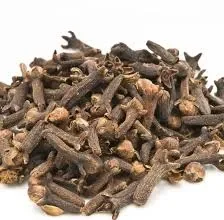
Cloves are a useful spice that add warmth and sweetness to baked goods, sauces, meat rubs, marinades and drinks. Some people also use the dried flower buds and the leaves, stems and oil from clove trees to promote healing.
Cloves are a popular herb therapy among people who use traditional Chinese medicine and Ayurvedic medicine. The spice comes from an evergreen tree that grows in East African and Southeast Asian countries.
Functional medicine specialist Erik Modlo, MD, reviews the potential health benefits of cloves, as well as what to watch out for.
Are cloves good for you?
A chemical in cloves called eugenol gives the spice its distinct aroma. Eugenol is especially strong in clove oil, a type of essential oil or concentrated plant extract. “Eugenol may have anti-inflammatory and antibacterial properties,” says Dr. Modlo. “Consuming cloves in small amounts in foods isn’t harmful. But there isn’t enough scientific evidence to support its use for medicinal purposes.”
What’s in a serving of cloves?
According to the U.S. Department of Agriculture, one teaspoon of ground cloves is 6 calories and has approximately:
- 1.4 grams of carbohydrates.
- 13 milligrams of calcium.
- 1.2 milligrams of manganese.
- 5.4 milligrams of magnesium.
- 21 milligrams of potassium.
- 6 milligrams of sodium.
- 3 micrograms of vitamin K.
So, are cloves good for you? This spice is definitely a healthier addition to your diet than, say, enriched white bread or cane sugar. But while cloves have been used for thousands of years, the scientific data just isn’t there to support many health benefits — at least yet — until more studies are done. That said, while the research to-date is mixed, here are some potential health benefits of cloves:
- Relieve itchy skin
One study found that clove oil worked better than petroleum jelly and a placebo at soothing itchy skin. But some people experience burning and skin irritation after applying clove oil or clove oil products directly to their skin.
- Improve breathing
Breathing in steam from cloves boiled in water may open stuffy nasal passages when you have a cold or other respiratory illness. And people who follow traditional Chinese medicine often chew cloves to ease sore throats and coughs.
Clove risks and side effects
Clove oil can be toxic when ingested. Children who consume even small amounts of clove oil are at risk for liver damage and seizures. Keep clove products away from children’s reach.
You should avoid clove products if you:
- Are pregnant or breastfeeding (chestfeeding): Cloves as a food ingredient are likely OK because the amounts are small. But there’s no safety data on clove products and supplements while pregnant or breastfeeding.
- Take blood thinners or have a bleeding disorder: Eugenol affects your ability to clot blood and stop bleeding. This can cause serious problems if you take anticoagulants or aspirin (blood thinners) or you have a bleeding disorder.
- Are getting surgery: Cloves can affect blood sugar levels and blood clotting after surgery.
• Use insulin to manage diabetes: Your blood sugar levels may become dangerously low.













































